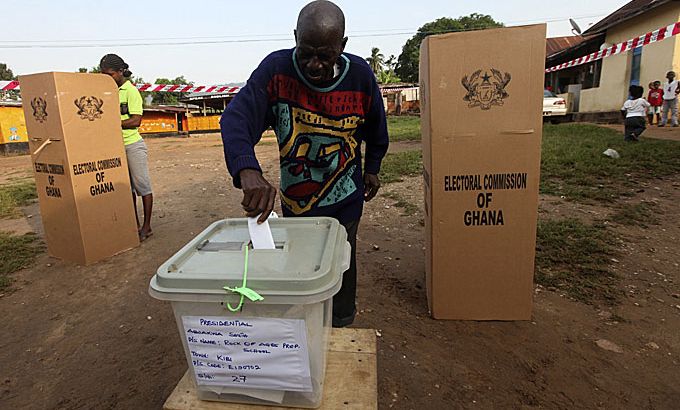
Ghana: Testing Africa’s model democracy
In a region still struggling toward democracy will elections in the West African nation be smooth and peaceful?
Ghana is often described as a beacon of functioning democracy in West Africa. It has had free and fair elections since the end of military rule in 1992, following a referendum that made law its multi-party system.
|
“One of the strong points about Ghanaian democracy … is that tribalism or ethnic strife has not been a particularly strong factor in the democratic process. In fact the main issue at the moment is how to distribute equitably the oil resources.” – Gamal Nkrumah, a political analyst |
It is also one of Africa’s fastest-growing economies, thanks to oil and natural gas reserves, and other natural resources like cocoa and gold that were discovered recently.
As voters cast their ballots in Ghana’s presidential and parliamentary elections on Friday, the question is whether the country will preserve its status as a ‘model democracy’ in Africa.
Although Ghana has enjoyed five peaceful transfers of power, other sub-Saharan countries still experience post-electoral violence.
Last year in Nigeria, around 800 people died during riots that followed the re-election of Goodluck Jonathan as president.
|
“As other African leaders look around for an example to follow, Ghana is the example … These governments in other parts of the continent, they got to deliver prosperity to their people and Ghana is making a genuine effort to do that.” – Aly Khan Satchu, an economist |
Ghana’s neighbour Ivory Coast saw a similar spate of violence in 2010 when Laurent Gbagbo refused to cede power after being defeated in an election.
And in Kenya, after incumbent president Mwai Kibaki won the elections in 2007, allegations of vote-rigging triggered a round of violence that killed more than 1,200 people.
So, could Ghana be a model for democratic process for the African continent?
Joining the discussion with Ghida Fakhry on Inside Story are guests: Aly Khan Satchu, an economist and political analyst; Gamal Nkrumah, the director of Cairo-based Pan-African Cultural Center; and Sylvain Touati, a fellow at FIKRA, a consulting and research think tank, and a specialist in African politics.
|
“We’re seeing investors from the Gulf and Latin America [going to West Africa], and it’s not only about commodities … investors are also looking at agriculture and infrastructure … It’s definitely an asset for Ghana to have a stable economy and government.” Sylvain Touati, a fellow at FIKRA |